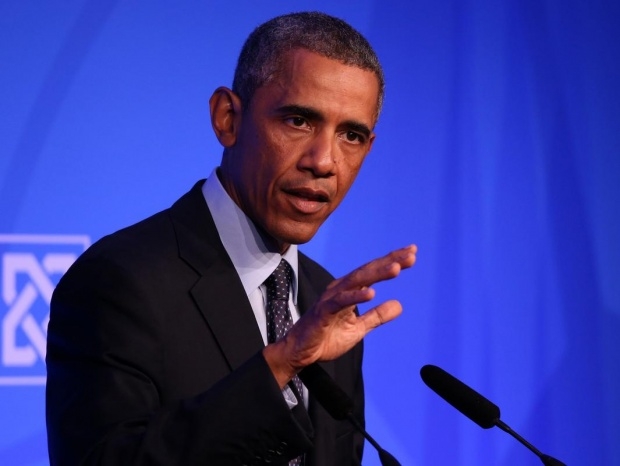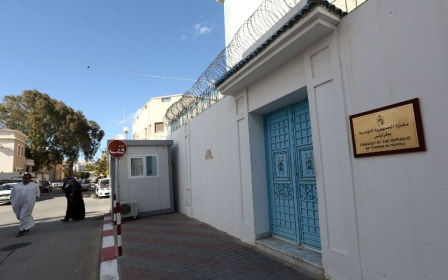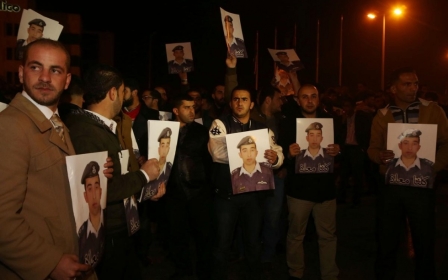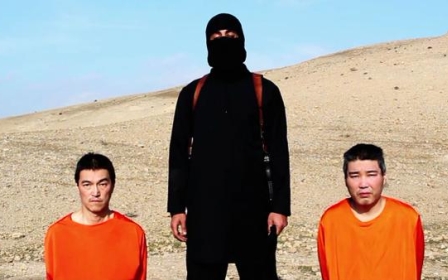Obama admits government let down hostage families

WASHINGTON - US President Barack Obama on Wednesday admitted his government had not always done enough to stop the "unrelenting nightmare" faced by relatives of hostages held abroad, as he eased restrictions on talking with captors.
Stressing the plight of the roughly 80 US hostages taken since 9/11 and their families, Obama announced a series of reforms to hostage policy.
Obama indicated his government would still refuse to pay ransoms, fearing that would help fund militant organisations like the Islamic State (IS) group and would make US citizens more of a target.
But his administration will no longer oppose talks with captors or threaten families with prosecution if they try to raise a ransom on their own.
"There have been times where our government, regardless of good intentions, has let them down," Obama said after hosting around 40 former hostages and relatives at the White House.
"I promised them that we can do better."
Around 30 American hostages remain in captivity, held by drug cartels, criminal gangs and by prominent Middle East rebel groups.
Some have complained that the government's policy has cost American lives, and that hostages from some European countries are often freed because ransom payments are made.
"Families feel that they've been threatened for exploring certain options to bring their loved ones home. That's totally unacceptable," said Obama.
"I firmly believe that the United States government paying ransom to terrorists risks endangering more Americans and funding the very terrorism that we’re trying to stop, and so I firmly believe that our policy ultimately puts fewer Americans at risk," he said. "At the same time, we are clarifying that our policy does not prevent communication with hostage-takers - by our government, the families of hostages or third parties who help these families.
"When appropriate, our government may assist these families and private efforts in those communications - in part, to ensure the safety of family members and to make sure that they’re not defrauded," he said. "So my message to these families is simple: We’re not going to abandon you. We will stand by you."
Senior Obama advisor Lisa Monaco said a policy of not offering concessions remained in place, but said "no concessions does not mean no communications".
Captured and beheaded
Several US hostages have been killed in the past year in the Middle East, including some who have been beheaded in videos released by IS militants.
In his remarks, Obama apologetically relayed a litany of complaints from victims who felt lost in government bureaucracy, facing uncoordinated departments and conflicting information.
"Today my message to anyone who harms Americans is that we do not forget. Our reach is long, justice will be done," he said.
"My message to every American being held unjustly around the world who is fighting from the inside to survive another day, my message to their families, who long to hold them once more, is that the United States of America will never stop working to reunite you with your family."
"We will not give up no matter how long it takes."
Many of the measures announced on Wednesday are administrative, designed to adjudicate and delegate responsibilities between the FBI, CIA, Department of Justice, Pentagon and State Department.
Among them, Obama will establish an FBI-led "fusion cell" bringing together disparate government departments.
Diane Foley, the mother of James Foley, a journalist who was taken in Syria and beheaded by his IS captors, has said she felt abandoned by the government.
"I think our efforts to get Jim freed were an annoyance," she told media weeks after his death.
"Jim was killed in the most horrific way. He was sacrificed because of just a lack of coordination, lack of communication, lack of prioritisation," she said.
"As a family, we had to find our way through this on our own."
Amid public outcry, the Obama administration launched a policy review in December.
Obama elaborated, saying: "These families have already suffered enough, and they should never feel ignored or victimised by their own government,” reported the Voice of America.
The advocacy group Reporters Without Borders said it welcomed the results of that review, but said that words must turn into action.
"The White House now says there is room for negotiations in the handling of hostage cases. This is a healthy development," said Secretary-General Christophe Deloire.
Families, he said, had "too long been sidelined when strategic decisions were taken about their loved ones. The US authorities must show they are equal to the hopes they have raised."
New MEE newsletter: Jerusalem Dispatch
Sign up to get the latest insights and analysis on Israel-Palestine, alongside Turkey Unpacked and other MEE newsletters
Middle East Eye delivers independent and unrivalled coverage and analysis of the Middle East, North Africa and beyond. To learn more about republishing this content and the associated fees, please fill out this form. More about MEE can be found here.




